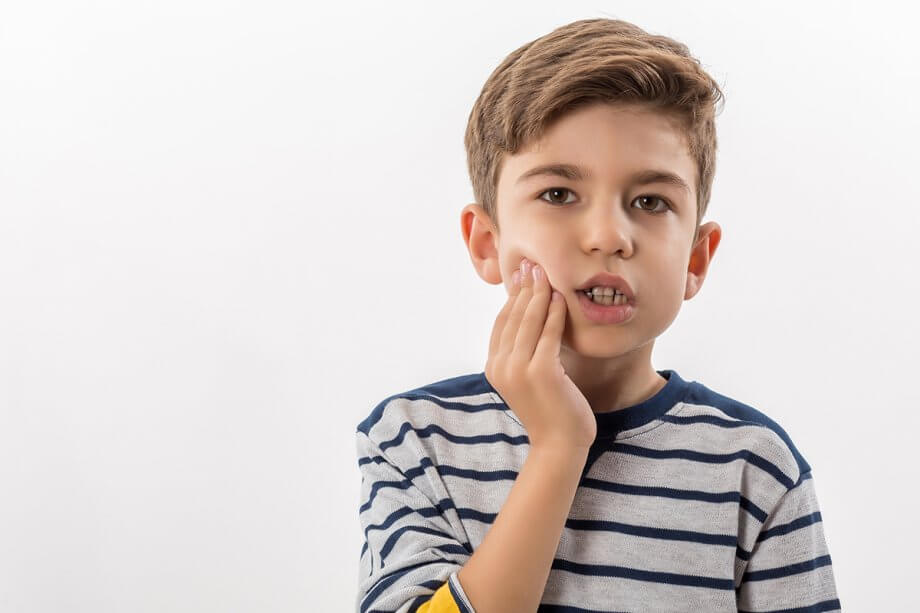Every parent wants to see their child grow up with a healthy, happy smile. However, cavities are a common dental issue among children that, if left untreated, can cause serious oral health problems. While it may be tempting to delay or avoid treatment, understanding the potential consequences of untreated cavities can motivate preventative care and timely treatment. At Pediatric Dental Associates of Clinton, we believe information is the first step toward making the best decisions for your child’s dental health.
Cavities do more than just cause discomfort. They can impact your child’s overall well-being, from their dental health to their ability to eat, focus at school, and feel confident. Here's everything you need to know about what happens if a cavity is neglected and how you can prevent long-term complications.
Tooth Pain and Sensitivity
One of the earliest and most noticeable issues caused by untreated cavities is tooth pain and sensitivity. When a cavity starts to form, it gradually erodes the enamel (the hard, outer layer of the tooth). If not treated promptly, this decay progresses deeper into the tooth, reaching the sensitive dentin layer and eventually the nerve.
This can lead to:
- Sudden, sharp pain when eating or drinking, especially with hot, cold, or sweet substances.
- Persistent toothache that can interfere with your child’s sleep or daily activities.
- Increased sensitivity to temperature and sugar, making mealtimes uncomfortable.
If your child complains of tooth pain or sensitivity, it’s essential to address the issue as soon as possible. Early intervention can prevent more invasive and costly treatments down the line, preserving both their smile and their comfort.
Infection and Tooth Loss
A cavity left too long without treatment can lead to severe infections. Once the decay reaches the center of the tooth (the pulp), where blood vessels and nerves are housed, it can result in an abscess. This painful condition requires immediate attention and can sometimes necessitate more extensive dental procedures or even hospitalization.
If untreated, tooth infections can cause:
- Swelling in the gums or face due to a buildup of bacteria and pus.
- Fever and general discomfort as the body attempts to fight the infection.
- Tooth loss, as the damage may become so severe that the tooth cannot be saved.
Losing a baby tooth prematurely can affect your child’s dental development, as neighboring teeth might shift into the empty space, causing alignment issues. This is why restorative dental care is so important for addressing cavities and maintaining oral health. Learn more about our restorative dental services for kids.
The Impact on Overall Health
Many people don’t realize how closely oral health is linked to general health. When a cavity is left untreated, the bacteria inside it can spread beyond the tooth, leading to complications that affect other parts of the body.
This can result in:
- Difficulty Eating and Nutritional Deficiencies: Painful teeth can make it challenging for children to chew, leading to a limited diet and inadequate nutrition.
- Concentration Issues: Persistent pain and discomfort may distract kids from focusing on schoolwork or enjoying their favorite activities.
- Systemic Infection: Severe dental infections can enter the bloodstream, creating life-threatening conditions such as sepsis in extreme cases.
These risks highlight why it’s essential to work with a pediatric dentist who can provide timely care and help maintain your child’s overall well-being.
Frequently Asked Questions About Composite Fillings
What are composite fillings, and why are they used for kids?
Composite fillings are tooth-colored restorations that blend seamlessly with the natural tooth enamel. They’re commonly used in pediatric dentistry to fill cavities because of their aesthetic and functional benefits. Made from a durable resin material, composite fillings not only repair the damage caused by decay but also allow your child’s smile to look natural and remain strong.
Pediatric dentists often recommend composite fillings for kids because they’re less invasive than traditional metal fillings and bond directly to the tooth, preserving more of its natural structure.
How long do composite fillings last in children?
With proper care, composite fillings can be quite durable and last for many years. However, it’s important to note that kids’ teeth are still growing, and their oral habits (such as chewing on hard objects or grinding teeth) can affect the lifespan of a filling. Regular dental check-ups are crucial to monitor the filling and ensure your child’s teeth stay healthy over time.
Encouraging good oral hygiene, such as brushing twice a day and flossing regularly, also plays a significant role in extending the life of composite fillings.
At Pediatric Dental Associates of Clinton, we specialize in providing exceptional dental care tailored to children’s needs. We provide a caring, family-friendly environment and the latest advancements in pediatric dentistry to ensure your child’s visit is smooth and stress-free. From cavity prevention to restorative procedures, we’ve got your little one’s smile covered! To schedule an appointment or learn more about how we can help, call us at 908-735-6300 or contact us online.
